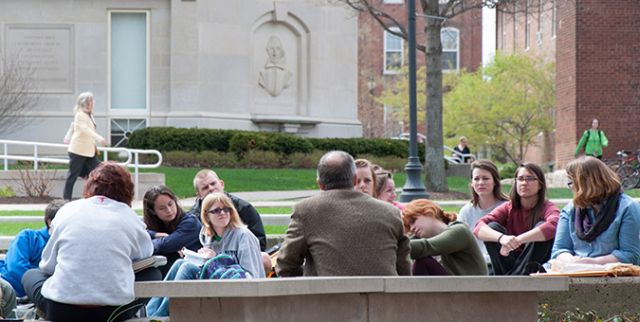
Philosophy Faculty Publications
Title
Document Type
Encyclopedia Entry
Publication Date
2013
Publication Source
Oxford Bibliographies in Islamic Studies
Abstract
‘Abdolkarim Soroush is the penname for Hossein Haj Faraj Dabbᾱgh (1945–). He is one of the most controversial figures in the religious and political polemics of postrevolutionary Iran. This is owing to his early adherence to the Islamic revolutionary values, his polemics against Marxism, later departure from the conservative Islam toward a reformist stand based on the philosophy of science and modern hermeneutics, and his current role as an uncompromising and outspoken opposition voice, as well as a fervent supporter of the Green Movement. Soroush’s ideas should be categorized under religious reformism in general, which goes beyond Iranian politics. Due the political nature of Islam today, particularly its governmental institutionalization in the postrevolutionary Iran, his views on religion have found direct political relevance to the relationship between religion and politics in the Shi ̒ite world. The modern category of “religious intellectualism,” in which Soroush is a major exponent has been connected to religious and political reformism, hence his journalistic title of “the Luther of Islam,” which he does not approve of because of fundamental differences between his agenda and that of Luther’s. As a prolific writer, and an eloquent lecturer and public speaker, Soroush has addressed a variety of issues for a large audience in Iran and beyond. In Iran, he was particularly associated with the Kiyᾱn Circle, a circle of thinkers and writers who published their critical and reformist views in a journal named “Kiyᾱn.” With his background in both Western and Islamic philosophy, he has managed to maneuver on ideas concerning the evolvement of religious sciences in keeping with the demands of modernity. Soroush is especially known for his critique of clerical Islam and his treatment of Islamic theology and law in relation with contemporary issues such as religious pluralism, democracy, and human rights by employing a literary style of writing that draws on his background in Persian mystical poetry. Soroush has been criticized from two opposite quarters. While the Iranian conservative clergy and politicians have repeatedly accused him of undermining Islam, secular intellectuals criticize the religious content of his ideas and the “paradoxicality” of his project: namely, religious intellectualism. Over the past decade, Soroush has attracted a lot of attention in Western academia. He left Iran after the conservatives’ pressure on him grew more intense following the turmoil during and after Khatami’s presidency. Since 2000 Soroush has been living in the West giving lectures at several universities including Harvard, Yale, Princeton, and University of Chicago.
Inclusive pages
1-3
Document Version
Published Version
Copyright
Copyright © 2013, Oxford University Press
Publisher
Oxford University Press
Place of Publication
New York, NY
eCommons Citation
Meisami, Sayeh, "'Abdolkarim Soroush" (2013). Philosophy Faculty Publications. 101.
https://ecommons.udayton.edu/phl_fac_pub/101



Comments
This encyclopedia entry is provided for download in compliance with the publisher's policy on self-archiving. Permission documentation is on file.